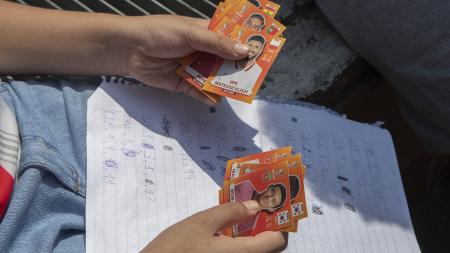The InfoDengue system, for monitoring arboviruses developed by researchers from the Oswaldo Cruz Foundation (Fiocruz) and the Getulio Vargas Foundation (FGV), launched a free e-book (digital book) on dengue and climate change in peripheral territories. The book shows that high temperatures, changes in the rainfall cycle and the incidence of droughts, resulting from the process of climate change and often intensified by human actions, favor the expansion of diseases transmitted by mosquitoes, such as Aedes aegypti, which transmits dengue. , zika, chikungunya and yellow fever.
According to Fiocruz researcher and InfoDengue coordinator, Cláudia Codeço, the digital book can also be used as support material in the classroom and in health education actions. She said that the tool fills a need for teaching materials for a large portion of the population that lives in places vulnerable to extreme weather events. The e-book seeks to bring reflection on this topic and also actions that can be taken to face the problem, said Cláudia to Fiocruz News Agency.
Report
The InfoDengue analyzes reinforce the Countdown report on health and climate change, made in partnership with 35 institutions, including the World Health Organization (WHO). The report points out that global warming promotes the expansion of mosquitoes responsible for transmitting dengue, offering a warm and rainy environment, conducive to the reproduction of insects and viruses.
The document was published in the journal The Lancet and shows that rainfall increases the number of breeding sites suitable for the development of mosquito larvae, providing appropriate environmental conditions for the spread of adult insects. Likewise, it accelerates the transmission of the virus between mosquitoes and humans.
According to data from the second volume of the Sixth Assessment Report of the United Nations Intergovernmental Panel on Climate Change (IPCC/UN), inhabitants of vulnerable regions around the world died 15 times more as a result of droughts, floods and storms than than those who live in safe areas.
InfoDengue
The InfoDengue system currently monitors dengue, zika and chikungunya data across the country in an integrated manner. Epidemiological notification data, climatic data and data mentioning diseases on social networks are analyzed, correcting delays in data notifications to speed up decision-making. The information is sent weekly, in bulletins, to the Health Secretariats.
Application
By identifying the increase in access to the site and aiming to optimize the time of users of the InfoDengue online arboviruses monitoring system, the project coordinator and researcher at FGV’s School of Applied Mathematics, Flávio Coelho, developed the first application for Android and IOS phones from InfoDengue. From this application, it is possible to search for the situation of arboviruses in the region of interest of each citizen.
















